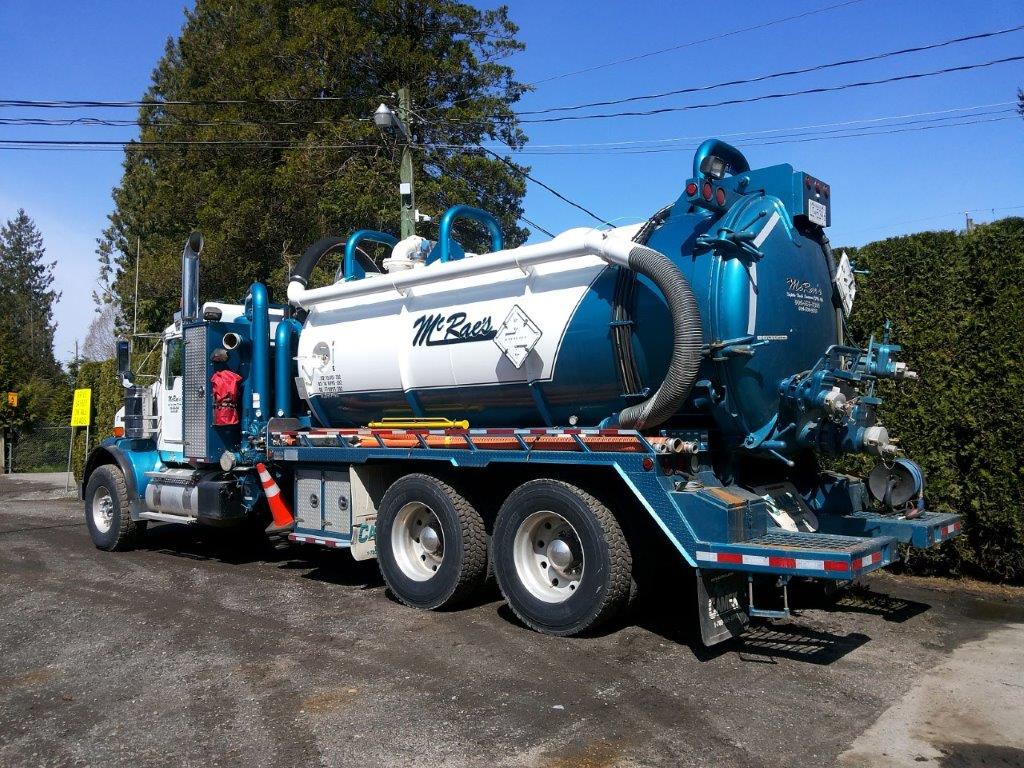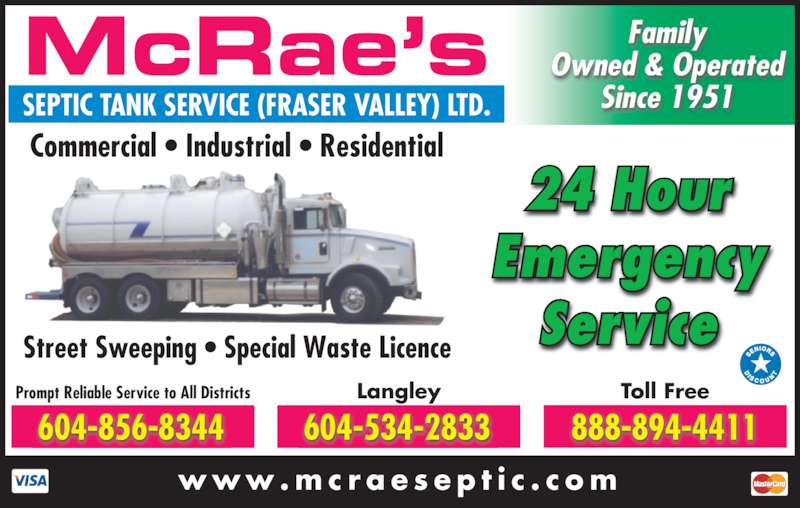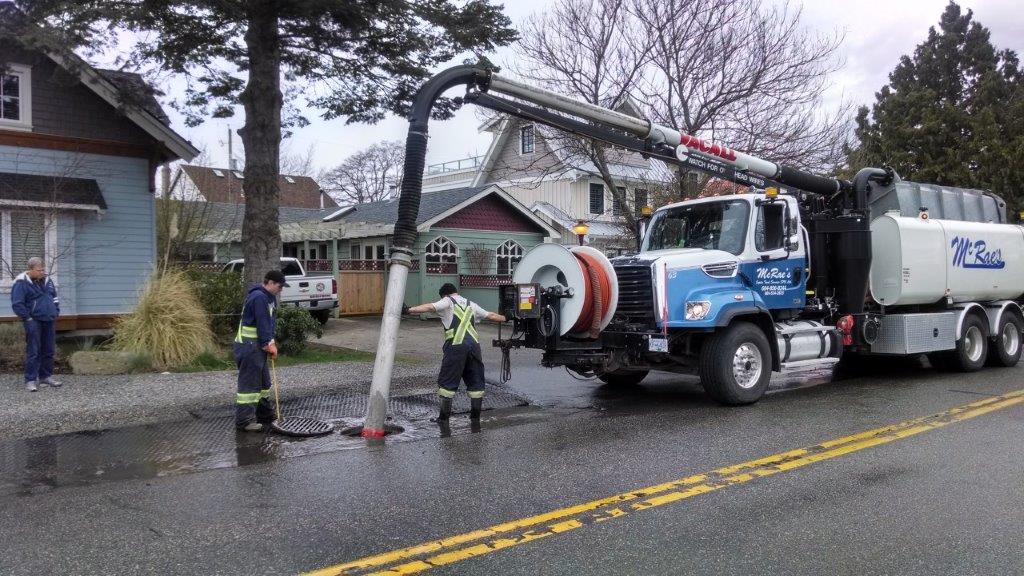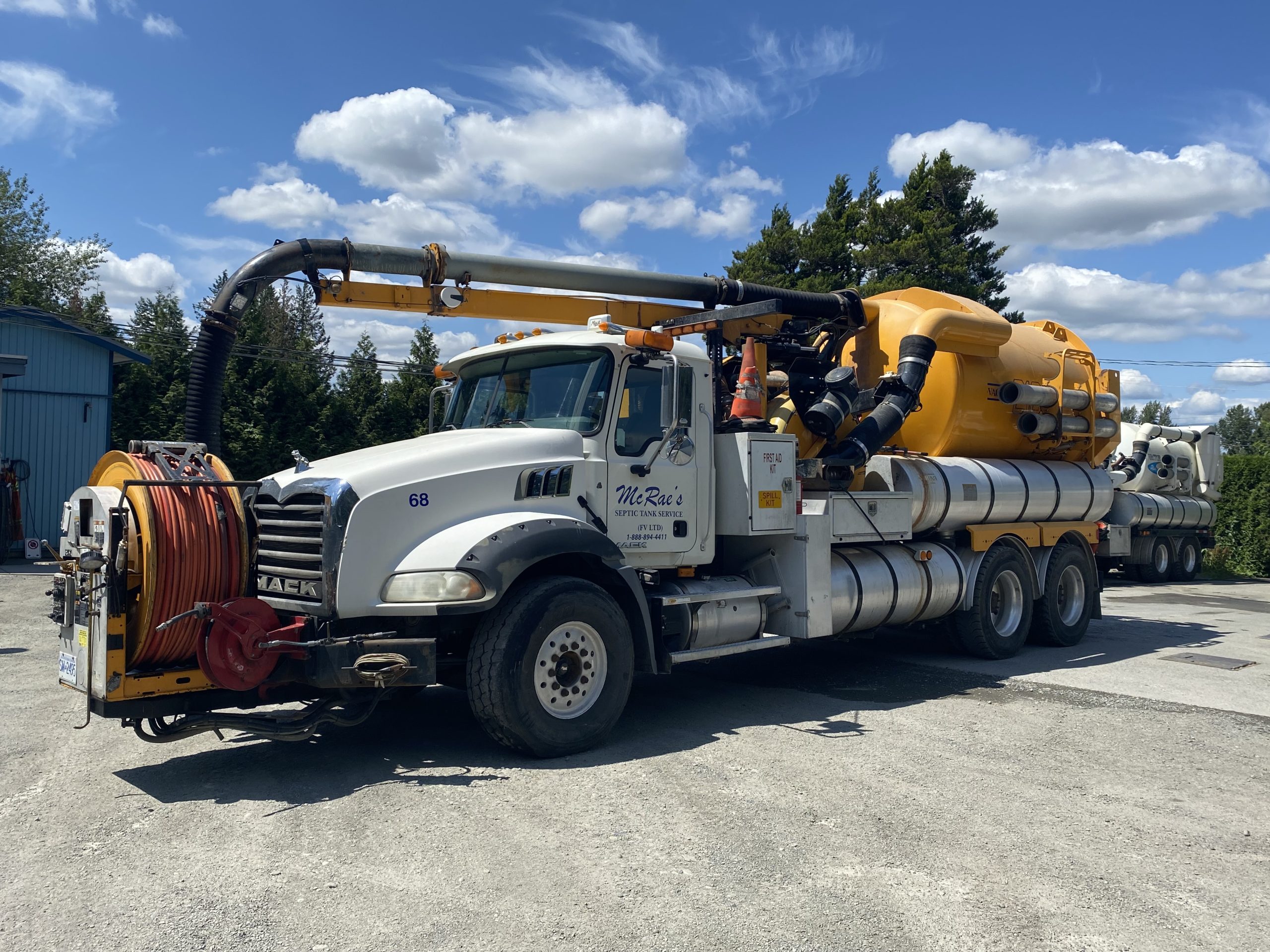 Did you know that McRae’s Septic is not only your local septic services provider but also your source for hydro vac excavation in Metro Vancouver and the Fraser Valley? Hydro excavation is a non-mechanical, non-destructive procedure that utilizes pressurized and industrial strength vacuum to excavate and at the same time evacuate soil. Hydro excavation safely loosens soils, and then the soil and water slurry is conveyed to a debris tank.
Did you know that McRae’s Septic is not only your local septic services provider but also your source for hydro vac excavation in Metro Vancouver and the Fraser Valley? Hydro excavation is a non-mechanical, non-destructive procedure that utilizes pressurized and industrial strength vacuum to excavate and at the same time evacuate soil. Hydro excavation safely loosens soils, and then the soil and water slurry is conveyed to a debris tank.
As opposed to using manual or mechanical means to loosen the soil, hydro excavation uses water to break it, virtually eliminating any risk of harming underground utilities. The hydro excavation process ensures a safe, fast and accurate excavation that requires less backfill, effort as well as restoration. Hydro excavation has also proved to have less environmental impacts about traditional excavation methods.
Hydro excavation has been found to be of utmost importance in processes like:
- Debris removal
- Piling hole excavation
- Cold weather digging
- Exposing utilities
- Slot trenching
- Remote digging
Debris removal
Given the precision and non-destructive characteristics of hydro excavation, it can be employed in removing debris and cleaning out a host of structures without damaging the area surrounding. It is also an ideal solution for catch basin cleaning, removing sludge as well as cleaning up spills.
Hydro excavation is also perfect for piling hole excavation, largely thanks to its precision. Underground utilities that may be uncovered during excavation are not destroyed as it is the case while using manual excavation methods.
Cold weather digging
Many hydro-excavation trucks have truck-mounted heaters thus enabling them to work even under extreme conditions of cold. Additionally, hydro excavation is more economically friendly than the alternative ground thawing methods of cold weather digging.
Exposing utilities
Based on the very fact that hydro excavation uses water in breaking up ground and vacuum debris, it is the safest and most reliable method of exposing underground utilities. It rules out the risk of damaging the buried utilities. Using hydro excavation to expose utilities, often referred to as daylighting, or potholing ensures that the surrounding material remains unaffected.
Slot trenching
Digging narrow trenches for fixing pipes, cables, and other ground utilities are known as slot trenching. Hydro excavation provides a non-destructive and efficient alternative to traditional slot trenching. Hydro excavation, therefore, comes in handy in cutting down serious and costly damages. Furthermore, hydro excavation can be used efficiently on frozen surfaces. It makes it secure and easy to install sprinklers, locate underground utilities, and perform installations of such kind without the risk of destroying earlier installed systems or lines.
Remote digging
Hydro excavation uses highly pressurized water that has enough pressure to break frozen ground and to dig in areas where traditional construction equipment cannot. The pressure applied enables the job to get done with more accuracy and precision than traditional methods. Hydro excavation is non-destructive and involves no heavy machinery to move the dirt. This has rendered it the preferred option for excavation contractors.
Hydro excavation is also able to eliminate problems associated with digging in remote areas. The truck used can be located far from the real excavation site so it won’t need to pass through narrow streets or impenetrable back roads. Also, the hydro excavation process does not require much labor, so costs are reduced considerably.
When fiber optic cables, water mains, telephone lines, and other utility lines necessitate repair, remote digging through hydro excavation is the method of choice.
Are you in need of Hydro-Vac excavation services in Metro Vancouver, Surrey, Langley, Abbotsford or the Fraser Valley?
McRae’s has you covered… Just call toll free @ 1-888-894-4411 or email us for your quote.




